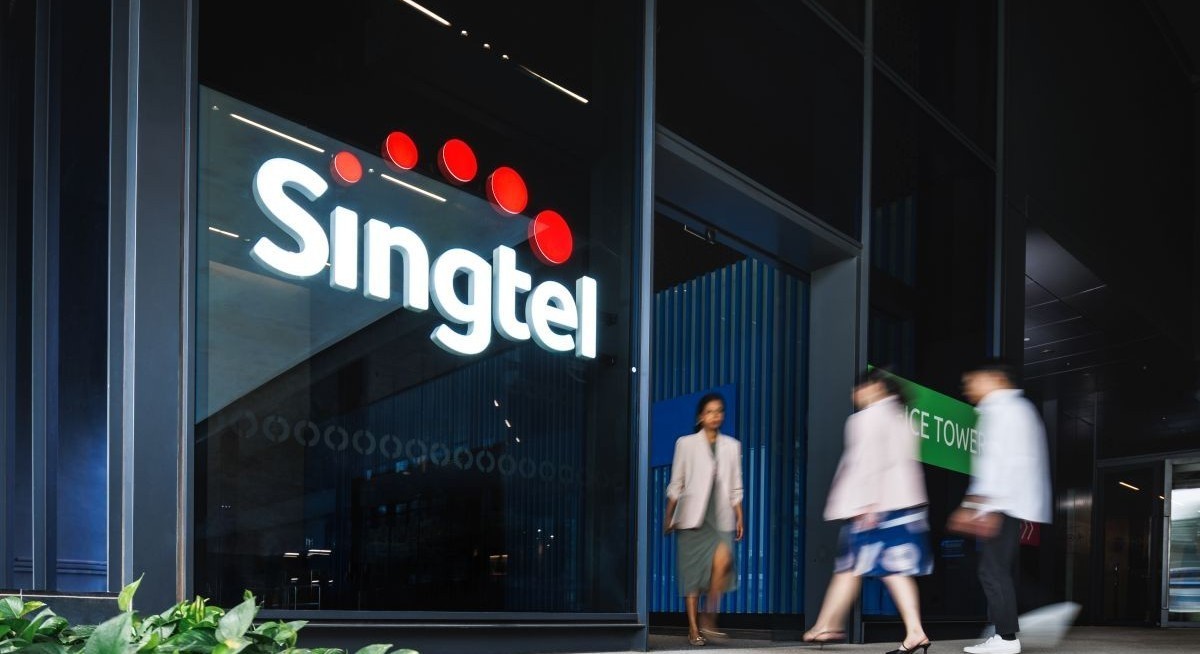Singtel reported its 1QFY2026 core earnings rose 15% from the previous quarter and 14% from a year earlier to $686 million. This is the highest for a single quarter in more than five years and made up 25% of consensus estimates.
Gains were driven by stronger ebit from Optus and NCS, up 10% year-on-year (y-o-y), and a 15.4% y-o-y boost from regional associates, notably Bharti Airtel and Advanced Info Service (AIS).
Optus’s ebit surged 36% on 4.4% revenue growth, driven by postpaid price hikes. Singtel Singapore revenue was flat as an 11% drop in mobile revenue was offset by gains in ICT, international data, and equipment sales. Increased bundling of roaming services in mobile plans impacted mobile revenue where Singtel is more pre-disposed to.
“We continue to like the stock for its capital management prospects and ROIC expansion,” says RHB Bank Singapore, adding that Singtel stands to benefit from lower competitive intensity following domestic market consolidation.
See also: StarHub’s weak FY2026 guidance leads DBS to review call while Morningstar flags overvaluation
CGS International’s Prem Jearajasingam believes the Simba-M1 consolidation will have a “largely neutral” impact to Singtel group earnings in FY2026. “However, unless the merged entity shifts its focus to cashflows and profitability, there is an increased risk to Singtel Singapore’s mobile revenues, albeit of minimal risk to overall future group earnings, in our view,” he wrote in his Aug 13 note.
He maintains his “hold” call with an unchanged target price of $4.10, citing a 21 times 2026 forward price/earnings (P/E) as capping upside, while a forecast 5.1% dividend yield offers downside support.
UOB Kay Hian analyst Chong Lee Len believes Singtel is “well-positioned to capitalise on growth opportunities in its enterprise business”.
See also: IFAST share price dips despite strong earnings 4QFY2025 announcement; DBS maintains ‘buy’ at $12
NCS’ ebit gained 22% on cost efficiencies and higher public-sector billings, with an orderbook of $732 million. Meanwhile, Digital InfraCo saw revenue dip 2% on lower project-based satellite deployment fees, but ebitda and ebit rose 7% and 29% on lower utility costs and depreciation on assets by Nxera, its regional data centre arm.
DBS Group Research analyst Sachin Mittal forecast a 10% CAGR in Singtel’s core net profit from Singapore and Australia over FY2025 to FY2028, driven by gains at Optus, NCS, and Nxera. He expects Nxera’s contribution to rise significantly from FY2027, citing “a strong case for a 300% increase in core business value” from a re-rating in its 12-month forward P/E multiple from five times to 18.5 times.
Morningstar analyst Dan Baker gave Singtel a two-star rating on the firm’s five-tier scale, raising the fair value estimate to $3.67 from $3.60 on currency moves and changes in associate share prices.
Among associates, Telkomsel’s pre-tax contributions fell 22% y-o-y on intense data competition and macroeconomic headwinds. However, Indonesia’s market is showing signs of recovery alongside stable fixed broadband revenue at IndiHome. Globe’s contributions declined 15% on weak consumer spending and fierce mobile competition.
In contrast, Bharti Airtel delivered a 123.1% surge in pre-tax contributions on customer growth and tariff hikes from market repair. As for AIS, it posted a 29% gain, helped by higher ARPUs and an expanded customer base through cross-selling of value-added services.
Baker says Singtel is “mildly overvalued” at current levels, compared with global peers on a 12-month forward P/E ratio of around 22 times. “However, we believe this to be partially a function of the higher growth outlook,” he wrote.
Morningstar projects an 11% CAGR in Singtel’s core (excluding associate) operating profit over the next five years, underpinned by a recovery in Optus earnings, cost cuts, and improved profitability from data centres as utilisation rises.
“Singtel will continue to benefit from ongoing monetisation plans as well as active capital management. In our view, Singtel remains an attractive play against elevated market volatility, underpinned by improving business fundamentals and a decent 4.5% dividend yield for FY2026”, wrote UOB Kay Hian’s Chong.
As at 3.55pm, shares in Singtel are trading 2 cents higher or 0.49% up at $4.09.




